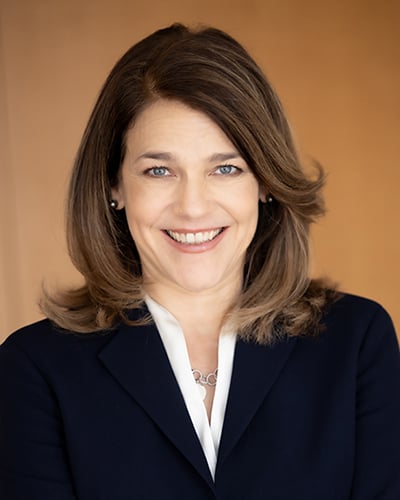The Sarbanes-Oxley Act of 2002 imposes new requirements on public company audit committees. Compliance will be required no later than April 26, 2003, after which time the Nasdaq Stock Market will be required to delist any non-compliant company. On July 29, 2002, Nasdaq also proposed new audit committee requirements, which are being submitted to the SEC for approval. It is likely that the SEC will approve many of these proposed rules. Given the lead time needed to educate audit committees and develop compliance strategies, most companies covered by the new requirements will want to move promptly in the direction of compliance without waiting for the completion of formal rulemaking. With this in mind, this Client Alert discusses the requirements of both the Act and Nasdaq as they relate to audit committee composition and responsibilities and the independence of the outside auditors. The Nasdaq requirements are those noted as “Pending SEC Approval”; all others are set forth in the Act.
Composition of Audit Committee:
-
Each member of the audit committee must be independent. In order to be considered independent, an audit committee member may not receive any consulting, advisory or other compensatory fees other than board, audit committee or other committee fees. An “affiliated person” is not independent. (Effective no later than April 26, 2003). The term “affiliated person” is not defined in the Act, but is likely to include controlling or even major stockholders and their officers and representatives. The SEC may exempt particular relationships from the requirements of independence.
-
Under the Nasdaq proposal, a shareholder controlling 20% or more of the Company’s voting stock would not be considered independent and could not serve on the audit committee. The proposed Nasdaq rules would also provide that any relative of an executive officer of the company or its affiliates would not be considered independent. Independence requires a three-year “cooling off” period for directors who are not independent due to: (1) interlocking compensation committees; (2) the receipt by the director or a family member of the director of any payments in excess of $60,000 other than for board service; or (3) having worked on the company’s audit engagement. (Pending SEC approval).
-
Companies must disclose in their periodic reports whether their audit committee has at least one member who is a “financial expert.” This term was not defined by the Act, but will be defined by the SEC. The SEC must consider in its definition whether a person has, through education and experience as an auditor or a principal financial officer, comptroller or principal accounting officer of a company, an understanding of generally accepted accounting principles and financial statements, experience in the preparation of financial statements of generally comparable companies, experience with internal accounting controls, and an understanding of audit committee functions. (Effective no later than January 26, 2003). Nasdaq proposed rules would require that all members of an audit committee be able to read and understand financial statements at the time of their appointment, without the benefit of the current grace period. (Pending SEC approval).
New Audit Committee Responsibilities: Audit committees should be aware of the following new responsibilities.
-
Appointment of Independent Auditor. The audit committee is directly and solely responsible for the appointment, compensation and oversight of the company’s outside auditors (including the resolution of disagreements between management and the auditor regarding the company’s financial reporting). The practice followed by some companies of seeking shareholder approval of the auditors may not be consistent with this requirement. (Effective no later than April 26, 2003).
-
Report of Independent Auditor. The company’s independent auditor must report directly to the audit committee. (Effective no later than April 26, 2003). The audit committee must consider reports from the independent auditor on:
-
the company’s critical accounting policies and practices;
-
all alternative treatments of financial information permitted within generally accepted accounting principles that have been discussed with management; and
-
all other material written communications between the independent auditor and management.
-
Approval of Audit and Permitted Non-Audit Services. Under the Act, audit services and permitted non-audit services, including tax services, must be approved in advance by the audit committee. The effective date of this provision is not clear, although it is possible that it is effective immediately. In any event, we believe companies should begin implementing this requirement immediately. There is a de minimis exception in the Act for services not recognized by the company as non-audit services. All approved non-audit services must be disclosed in periodic reports filed with the SEC. The Committee may delegate to one or more members the authority to grant such approvals.
-
Approval of Related Party Transactions. Nasdaq proposed rules would require that the company conduct an appropriate review of all related party transactions on an ongoing basis and that all such transactions must be approved by the company’s audit committee. (Pending SEC approval).
-
Procedures for Accounting Complaints. The audit committee must establish procedures for the receipt, retention and treatment of complaints received by the company regarding accounting, internal accounting controls or auditing matters.
The audit committee must also establish procedures for the confidential, anonymous submission by employees of concerns regarding questionable accounting or auditing matters. (Effective no later than April 26, 2003). -
Authority to Hire Counsel and Experts. The audit committee has the authority to hire independent counsel and other advisers as the committee deems necessary to carry out its duties. Companies are also required to provide funding for the audit committee, as the committee deems necessary, to compensate the independent auditor and advisors employed by the Committee. (Effective no later than April 26, 2003).
Outside Auditor Independence: In an attempt to preserve the independence of outside auditors, several new restrictions and requirements have been imposed.
-
Prohibited Non-Audit Services. The Act prohibits accounting firms from providing the following non-audit related services to a company to which it provides audit services (Effective upon registration of the outside auditors with newly created Public Company Accounting Oversight Board):
-
bookkeeping or similar services;
-
financial information systems design and implementation;
-
appraisal or valuation services, fairness opinions, or contribution-in-kind reports;
-
actuarial services;
-
internal audit outsourcing services;
-
management or human resource functions;
-
broker or dealer, investment adviser, or investment banking services;
-
legal services and expert services unrelated to the audit; and
-
any other service deemed impermissible by the newly created Public Company Accounting Oversight Board.
-
Auditor disqualification based on company personnel. An accounting firm may not provide any audit service to a company if the CEO, controller, CFO, or chief accounting officer was employed by the accounting firm and participated in any capacity in the audit of the company during the one year period preceding the initiation date of the audit. (Effective upon registration of the outside auditors with newly created Public Company Accounting Oversight Board).
-
Audit partner rotation. Every five years, it is required that the lead audit partner responsible for the audit of a company and the audit partner responsible for reviewing the audit are rotated off the engagement. (Effective upon registration of the outside auditors with newly created Public Company Accounting Oversight Board).
-
Rotation of outside auditor. The Comptroller General of the United States will conduct a study and review of the potential effects of requiring the mandatory rotation of registered public accounting firms. A report on this study will be presented to Congress no later than July 30, 2003. Audit committees should be aware that regulation could arise from this study.
Contact Information
If you have any questions or would like to learn more about this topic, please contact the partner who normally represents you.
Stay Up To Date with Ropes & Gray
Ropes & Gray attorneys provide timely analysis on legal developments, court decisions and changes in legislation and regulations.
Stay in the loop with all things Ropes & Gray, and find out more about our people, culture, initiatives and everything that’s happening.
We regularly notify our clients and contacts of significant legal developments, news, webinars and teleconferences that affect their industries.




